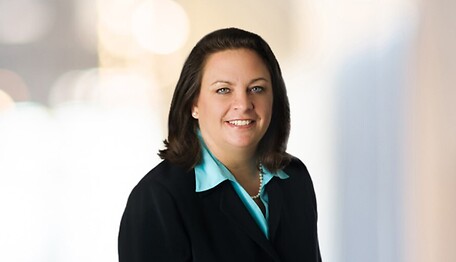Fighting COVID-19 Across State Lines: Relaxing Provider Licensure and Renewal Requirements
Recently, the Centers for Medicare & Medicaid Services (CMS) authorized reimbursement of telehealth services across state lines and permitted licensed healthcare providers to render care outside of their state of enrollment. Subsequently, the Department of Health and Human Services (HHS) began working on a regulation that would allow medical professionals to work across state lines. In anticipation of the forthcoming HHS regulation, and in response to the anticipated increase in the use of telemedicine, various states have started waiving/relaxing licensure and renewal requirements in an effort to assist in meeting the increased demand for medical professionals to handle the COVID-19 crisis.
Delaware: The Joint Order from the Department of Health and Social Services and the Delaware Emergency Management Agency allows out-of-state healthcare providers to provide healthcare services in Delaware for the duration of the State of Emergency. Additionally, healthcare providers whose Delaware license became inactive, expired or lapsed within the last five (5) years may provide healthcare services as well, providing their license was in good standing. The Order also permits out-of-state practitioners to practice telemedicine. Further, students currently enrolled in a Delaware Board of Nursing-approved school are authorized to conduct medical examinations and tests in the event such activities are supervised by a healthcare provider with an active Delaware license.
Massachusetts: The Massachusetts Board of Registration in Medicine has established an Emergency Temporary License Application for out-of-state physicians. Physicians must generally hold an active and unrestricted medical license to qualify, however, physicians who have retired within one (1) year may have their license reactivated. Additionally, Massachusetts physicians whose licenses have, or will, come up for renewal during the State of Emergency will have their renewal date extended until 90 days following the end of the emergency.
New Jersey: The New Jersey Attorney General and the Division of Consumer Affairs have waived a number of regulatory requirements allowing medical professionals licensed in other states to obtain temporary licensure in New Jersey during the public health emergency. Criminal background checks, licensing fees and submission of proof of sufficient medical malpractice insurance are currently waived. Healthcare professionals would be able to offer services to New Jersey residents, including telemedicine and telehealth services.
New York: The Governor of New York issued Executive Order No. 202.5, which suspended sections of the Education Law and the New York Code, Rules and Regulations to the extent necessary to allow physicians, physician assistants and nurses licensed and in good standing in any state to provide services in New York. Additionally, the Education Department altered regulations for continuing education requirements for healthcare providers and is allowing those licensees whose registrations are due to renew between March 1 and June 1, 2020 to complete 100% of the continuing education as self-study as long as the other requirements are met.
Pennsylvania: The Governor of Pennsylvania granted a number of the Department of State’s requests to suspend several provisions that create barriers to temporary licensure of healthcare professionals. Currently, healthcare professionals licensed under any of the Department of State’s Bureau of Professional and Occupational Affairs licensing boards, including professionals from out of state, can provide telemedicine services. Additionally, several administrative requirements are waived in order for the Department to grant temporary licenses on an expedited basis to out-of-state practitioners so they can provide in-person services for Pennsylvanians. Several continuing education requirements have also been suspended. Further, certain administrative requirements for nurses, including temporarily extending license expiration dates and waiving associated fees, are suspended as well.
Rhode Island: There have been no formal changes related to licensing or renewals in Rhode Island. However, the Director of Public Health has stated that a professional with a medical license in good standing in another state can practice in Rhode Island under a temporary, 90-day license after filling out a form.
If you have any questions about provider licensure and renewal requirements or CMS guidance, please contact Debra A. Weinrich (weinrichd@whiteandwilliams.com; 215.864.6260), Alison Russell (russella@whiteandwilliams.com; 215.864.6835) or another member of the Healthcare Group.
As we continue to monitor the novel coronavirus (COVID-19), White and Williams lawyers are working collaboratively to stay current on developments and counsel clients through the various legal and business issues that may arise across a variety of sectors. Read all of the updates here.
PRACTICE AREAS
Practice Areas
KEY ATTORNEYS
-
Partner

